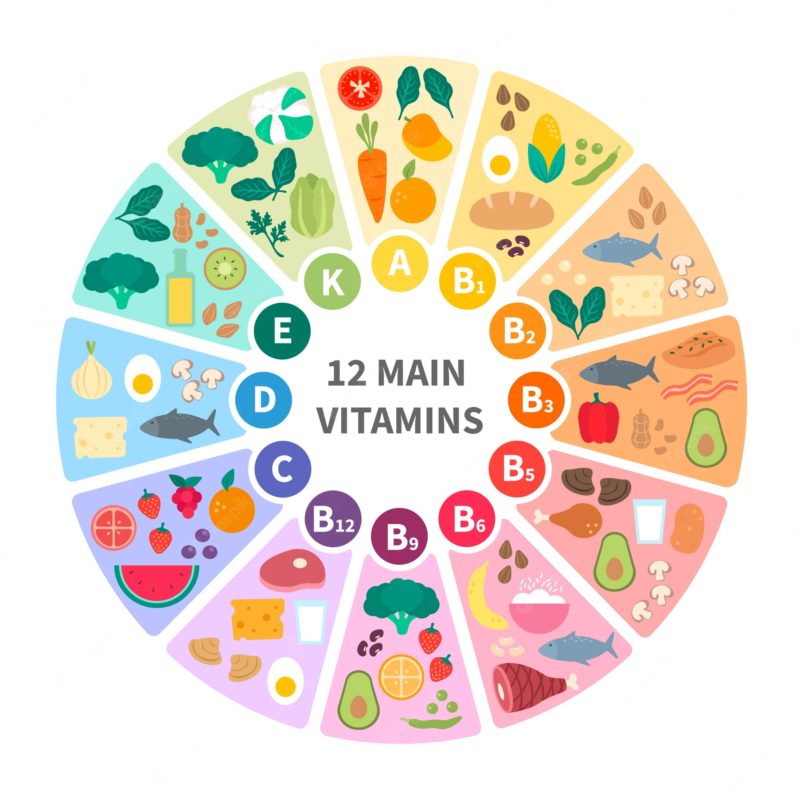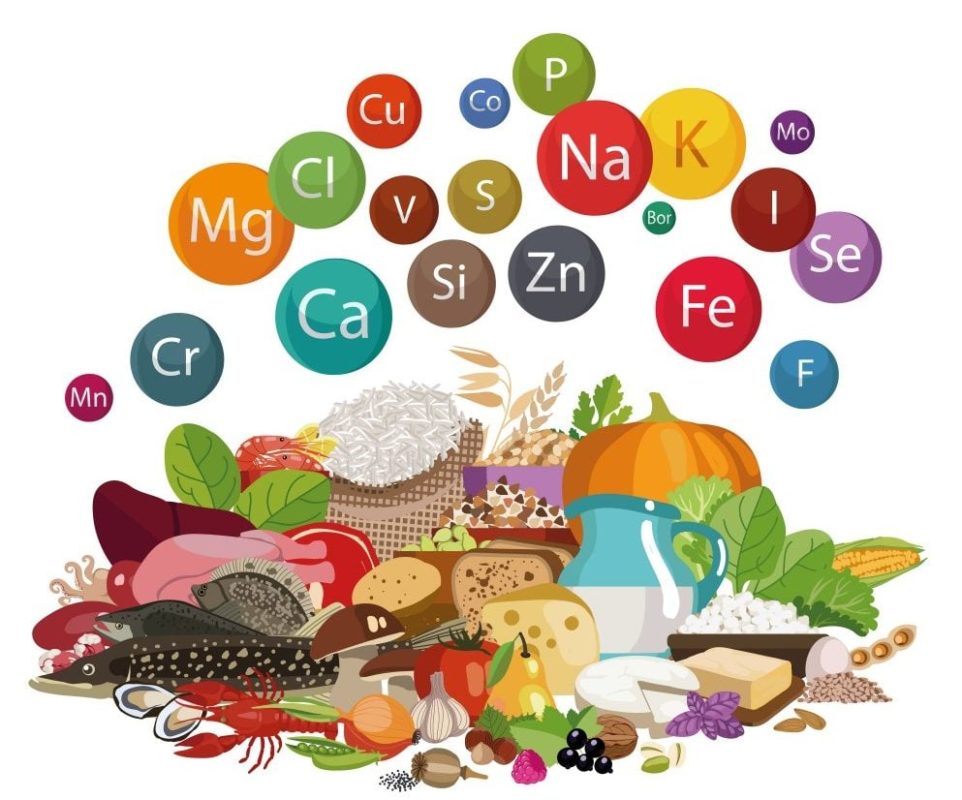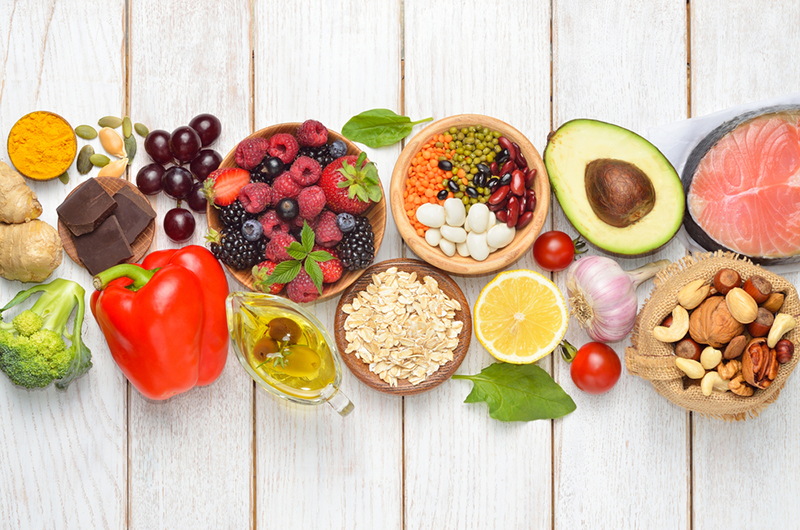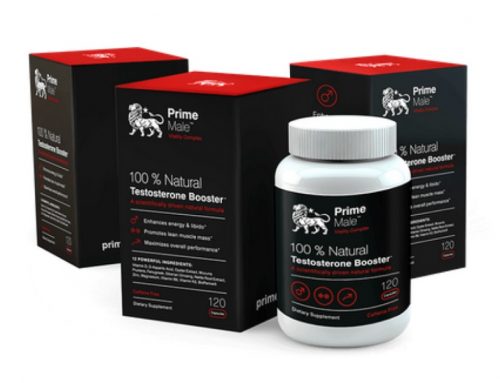Nutrition, an independent science by now, gives the guidelines for the foundation of a good, healthy and quality life.
According to Hippocrates – the ancient Greek founder of rational medicine and father of medicine as known today – “Have as medicine your food and let your food become your medicine”.
Reading carefully the words of Hippocrates, we can easily understand – even after so many centuries – the great truth they have hidden about the role of food (nutrition) in human health.
There is, therefore, no doubt about the significant role of nutrition and especially today with science proving more clearly the importance of quality food and good meal management in the daily life of the individual.
Now more than ever – and having seen (and scientifically proven) the effects of poor nutrition on health – good and quality nutrition has even greater importance to human life.
“We are what we eat!”
…. state now great and reputable nutritionists around the world, urging the world to seek an “education” on the rules of a healthy diet (as defined by much scientific data).
“Drink an orange juice so you do not get sick!”, “Eat lentils to become strong!”, “Eat your fish to have strong eyes!”, “An apple a day gets the doctor away”
As our grandmothers used to say, expressing even then more simply and without scientific evidence, however, the importance of quality food in our lives.
A deep empirical knowledge expressed so simply, yet hiding such a great truth. A fact that many years later confirmed by scientific articles and advice from highly paid nutritionists.
However, what does “proper and healthy eating” really mean finally?
The “right” nutrition, today
According to scientific studies, a balanced diet could offer many (and very important) benefits to the organism.
- enhanced immunity
- better weight management
- more correct gastrointestinal (digestive) function
- anti-aging
- improved physical performance (strength, endurance, flexibility, balance)
- improved brain performance (thinking, memory, learning and mental ability, concentration, problem solving, complex thinking)
- optimal nervous function
- stress management
- balanced hormones
- improved mood & psychology
- improved sleep
People consuming “healthy” foods in their meals (such as fruits, vegetables, whole grains, and fish and good omega-3 fatty acids) seem to live longer, running a better life as well.
Scientists confirm that a good nutrition can prevent serious illnesses (such as cancer, obesity or type 2 diabetes), reduce the risk of serious mental illness (as depression) and minimize the risk of serious illness (as dementia and Alzheimer).
The “nutrients” offered by a good and balanced diet to organisms are irreplaceable.
Vitamins, precious minerals, fibre, trace elements, antioxidants and “good” oils, prevent the “wear and tear” of the organism, promoting longevity and wellness.
A brief overview of nutrients included in healthy eating

Following a more practical way, we can see what the nutrients really offer to our organism and therefore to the quality of our daily lives.
Vitamins for a Healthy Nutrition
Vitamin A
Vitamin A – a water-soluble vitamin formed in the organism by carotenoids – is a powerful antioxidant addition to meals, offering assistance to a variety of health problems, from the fight against acne to the prevention and fight against cancer (especially lung cancer).
Found mainly in “red & yellow” fruits and vegetables (such as peppers, oranges, papaya, mango, sweet potato, carrots and spinach), but also in fish, eggs, liver and milk.
Vitamins of the Vitamin B Complex
Prior to providing some information on these very important vitamins, let’s know their names first
- vitamin B1 / thiamine
- Vitamin B2 / riboflavin
- vitamin B3 / niacin
- Vitamin B5 / pantothenic acid
- Vitamin B6 / pyridoxine
- Vitamin B7 / biotin
- Vitamin B9 / folic acid or fylic acid
- vitamin B12 / cobalamin
A balanced diet (in most cases) could meet the organism’s daily needs for B vitamins with no need for supplements.
As a key building block for the healthy and strong organisms and balanced psychology, B-complex vitamins play a crucial role in human life.
With important actions such as fat metabolism, energy production and weight management and also the proper functioning of the organism’s fundamental systems (nervous system, digestive system, endocrine system, immune system, cardiovascular system and brain system), it is important to be administered adequately and consistently.
Furthermore, B vitamins, in addition to their special action, offer a synergistic action in combination with other vitamins, that is, helping in the satisfactory action of other important vitamins and beneficial nutrients.
Each of the B vitamins is unique, offering different benefits to the organism.
In addition, each of the B vitamins is found in different foods of our daily life.
Below are the benefits of each of the valuable vitamins and foods in which we can find them.
- vitamin B1 / thiamine
Action: Energy production, good functioning of the CNS (Central Nervous System), carbohydrate metabolism, shiny hair and skin, good brain function, healthy cardiovascular function, red blood cell formation, muscle stimulation and normal function of the muscular system,
Foods: Whole grains, nuts, beans, tuna, chamomile, Mint, spirulina, brewer’s yeast, black rice, Pork, Sunflower seeds, oranges, vegetables (in general), sesame pulp (tahini), spinach, syrup
- Vitamin B2 / riboflavin
Action: Conversion of carbohydrates into glucose and glucose into energy, healthy liver, healthy and beautiful hair / nails / skin, healthy vision, nervous system, antioxidant protection, cancer prevention, heart protection, red blood cell growth and production, smooth digestive process
Foods: Wild rice, almonds, whole grains, milk, yoghurt, mushrooms, soy, spinach, Brussels sprouts, broccoli, eggs
Action: Utilization of fats and proteins for energy production, healthy gastrointestinal (digestive) system, regulation of the levels of various enzymes, normal functioning of the nervous system, enhancement of memory, enhancement of cardiovascular function, good skin health
Foods: Peanuts, beetroot, fish, liver, sunflower seed, tuna, chicken, avocado, peas, mushrooms, peanut butter, peanuts, milk, eggs, lean red meat, fortified Cereals
- Vitamin B5 / pantothenic acid
Action: Energy production, vitamin D production (therefore: bone health), fighting acne, hair health, improving mental performance, fighting oxidative stress, anti-aging, improving heart health, normal liver function, healthy liver system, good eye health and enhancement of vision
Foods: Chicken, meat (mainly beef), liver, eggs, dairy products, cauliflower, sunflower Seed, sweet potato, broccoli, corn, pumpkin, tuna, avocado, salmon, strawberry, grapefruit
- Vitamin B6 / pyridoxine
Action: Hormonal health, good psychology, anti-depression, normal brain function, haemoglobin production, CNS (Central Nervous System) function, normal brain development in children and adolescents, melatonin production, good and quality sleep, oxygen transfer to cells of the entire body, reduction of Alzheimer’s risk, stroke prevention, wellness, blood vessel health, reduction of inflammation, reduction of total homocysteine levels, strengthening the immune system, production of “joy hormones”, fights arthritis, relief of the symptoms of PES (Premenstrual Syndrome), reduction of nausea in pregnancy
Foods: Red meat, poultry, fortified cereals, bananas, peanuts, peanut butter, rice, liver, spinach, fish, sunflower seed, corn, potatoes, sweet potatoes, peas, carrots, dill, oatmeal
- Vitamin B7 / biotin
Action: Energy production, Hair/skin/nail health
Foods: Eggs (mainly yolk), herring, peanuts, peanut butter, hazelnuts, liver, soy, wheat bran, brewer’s yeast, spinach, strawberries, bananas, salmon, sardines, mushrooms, grapefruit, almonds.
- Vitamin B9 / folic or fylic acid
Action: production of nerve cells, normal functioning of CNS, production of red and white blood cells, creation and protection of cells, fights fatigue, normal development of the fetus (during pregnancy), Reduction of the risk of problems during childbirth
Foods: Okra, eggs, asparagus, chickpeas, lentils, beans, beetroot, spinach, broccoli, Brussels sprouts, kale, nuts, oranges, lemons, tangerines, avocado, seeds, enriched cereals, peanuts, peanut butter
- vitamin B12 / cobalamin
Action: Good CNS function, good digestive function, protection of cells from damage and destruction, production of healthy red blood cells, anti-aging, control of free radicals, healthy development of the fetus during pregnancy, maintains a healthy hematocrit, healthy neurological disorders, avoids the manifestation of depression, enhances memory
Foods: oysters, clams, mussels, tuna, sardines, salmon, liver, dairy products, fortified cereals, dietary yeast, almond milk, coconut milk, soy milk, oat milk, caviar
Vitamin C
Action: Strengthens the organism’s defences, strengthen the bones, reduces fatigue, promotes strength and endurance, stimulates the normal functioning of the nervous system, anti-ageing, promotes beauty and health of the skin, and enhances collagen formation, anti-Inflammatory, weight loss.
Foods: Orange, lemon, strawberries, peppers (all colors), tomatoes, kiwi, pineapple, broccoli, spinach, papaya, guava, chili, grapefruit, potatoes, Brussels sprouts, mango, cauliflower, cabbage, melon, beans.
Vitamin D
Action: Bone health, regulates calcium and phosphorus absorption, fights and prevents osteoporosis, prevents hypertension, prevents various cancers, fights depression, prevents and fights dementia.
Foods: Dairy products, eggs (mainly yolk), liver (mainly beef), cod liver oil, orange juice (fresh), Salmon, Herring, Sardine, Tuna, Canned fish, Shiitake mushrooms, Tofu (enriched)
Vitamin E
Action: cellular protection, tissue protection, protection of body organs, fight oxidative stress, antioxidant protection, red blood cell production, muscle formation, avoidance of blood clotting and thrombus formation, dilation of blood vessels, utilization of vitamin K
Foods: Olive oil, corn oil, sunflower oil, soybean oil, peanuts, peanut butter, almonds, almond butter, hazelnuts, hazelnut butter, walnuts, avocado, seeds, spinach, broccoli, fresh broccoli, cabbage, lettuce.
Vitamin K
Action: Protein synthesis, blood coagulation, bone health, protection and good heart function, prevention of bleeding, proper functioning and utilization of proteins, Inhibition of calcium deposition in the arteries, calcium incorporation in the bones
Foods: Spinach, lettuce, kale, rocket, natto, soybean, broccoli, carrot Juice (fresh), soybean oil, edamame, pumpkin, turnip, pomegranate juice (fresh), kiwi, eggs, dairy products, grapes

Metals and Trace Elements in Nutrition
Calcium
Action: Bone health, osteoporosis prevention, tooth health, nail health, cancer prevention, nervous system health, blood pressure control, fat burning, energy production, weight loss, blood coagulation, heart health, heart health cell membrane.
Foods: Milk, yoghurt, cheese, soy milk (fortified), tofu, sardine, spinach, beans (dried), almonds, sesame, sesame pulp (tahini), brown bread, milk chocolate
Potassium
Action: Regulation of blood pressure levels, normal brain function, prevention of degenerative diseases of the brain, enhancement of normal muscle function, increased metabolic function, fat loss, weight loss, bone health, reduces stress and anxiety, secures sufficient humidity in the organism (hydration), Reduction of risk of kidney stones, Prevention of osteoporosis, normal muscle function
Foods: Sweet potato, zucchini, broccoli, orange, potato (mainly the skin), banana, chicken, spinach, beans (mainly white), halibut, yogurt, cantaloupe melon, raisins, salmon, chicken, milk
Iodine
Action: Hormone production, healthy thyroid function, normal brain development in fetuses, infants and children, fights menstrual cramps, weight control, prevents hair loss, enhances energy and fights fatigue, preventing fatigue, preventing fatigue of mood, healthy sex life (desire and performance), enhances libido, maintains serotonin in the brain at healthy levels, healthy and glowing skin, healthy nails not breaking
Foods: Shellfish, algae, fish (of saltwater), soy, eggs, milk (cow), yoghurt, cheese, beans, seafood, turkey, strawberries, potatoes, apples, pineapple, spinach, artichokes, cranberries, turnips
Iron
Action: Creation of red blood cells, transfer of oxygen to tissues of the entire body, strengthens the body’s immunity, hair/nail/skin health.
Foods: Shellfish, spinach, liver, other offal (kidneys, brain, heart), meat (red), tofu, molasses, dark Chocolate, quinoa, dried fruits, kale, rocket, parsley, spirulina, beetroots, mushrooms (mainly morels), sun-dried tomatoes, cabbage, strawberries, beans, lentils, cereals, nuts.
Magnesium
Action: Normal organism function, bone formation and healthy growth, regulation of vascular tone, regulation of heart rate, reduction of fatigue, normal functioning of the CNS (Central Nervous System), quality sleep,
Foods: Spinach, brown rice, whole grain wheat cereals, whole grain wheat bread, walnuts, almonds, bananas, peanuts, spices, cocoa, dark chocolate, soy, millet, chickpea, chickpea lentils, beans, garlic, artichoke, broccoli, apricots, peaches, sesame, sesame pulp (tahini), nut butter, apples, hazelnuts
Manganese
Action: Bone health, connective tissue health, blood sugar regulation, fat metabolism, energy production and fight of fatigue, weight loss, production of prolapse enzyme leading to collagen production, skin health, anti-aging, anti-aging adequate calcium absorption, prevention and treatment of osteoporosis, antioxidant protection, prevention of asthma, prevention of various skin diseases
Foods: Wholegrain bread, Wholegrain wheat cereals, oats, spinach, peas, sunflower seed, Peanuts, peanut butter, almonds, almond butter, brown rice, pineapple, broccoli,, cabbage, Kounoupado pumpkin, mango, banana, rocket, beet, lettuce
Zinc
Action: Protection against influenza virus and colds, strengthens the organism’s immunity, reduces the symptoms of a cold, protects and repairs body tissues, skin health, metabolism of many nutrients, healthy development of a child, function and growth of the reproductive system, prevention and treatment of hair loss, prevention and treatment of infections
Foods: Oysters, cheese (mainly Swiss), beef, yogurt (low fat), beans, chickpeas, chicken, quinoa, cashews, pork, broccoli, oats, sunflower seeds, cereals, eggs, pumpkin, wheat, sesame pulp (tahini)
Copper
Action: Healthy cholesterol levels, good immune system function, normal fetal development, red blood cell formation, healthy Bone and ligament formation, significant enzyme formation, tissue Oxygen Transfer, CNS normal function
Foods: Liver, intestines in general (heart, intestines, kidneys, brain), oysters, spirulina, seeds, nuts (mainly nuts), lobster, dark chocolate, spinach, kale, greens, rocket
Chromium
Action: Weight loss, enhances the effect of insulin, regulates blood sugar levels, reduces the risk of developing type 2 diabetes, Preventing obesity, Carbohydrate/protein / fat metabolism, fights fatigue, energy production, promotes heart health
Foods: Broccoli, fresh beans, barley, oats, tomato, black pepper, cheese, whole grain products, wine, beer, seafood, meat, nuts
Selenium
Action: Prevention and treatment of various infections, anti-inflammatory protection, stimulation cardiovascular system normal functioning, normal functioning of the brain, enhancement of thyroid gland proper functioning, enhancement of male fertility, stimulation of the immune system, prophylaxis
Foods: Brazil nut, oysters, pork, shrimp, salmon, beef, tuna, sardine, chicken, turkey, eggs, brown rice, sunflower seeds, beans, lentils, mushrooms, cottage cheese
Silicon
Action: Anti-aging, beauty and health of hair/nails/skin, the health, bone health, health of connective tissues, Strengthening the immune system, Strengthening the body, stimulates strength, Fighting fatigue, smooth functioning of the nervous system, healthy functioning stimulation of calcium metabolism and collagen production, prevention of cardiovascular diseases, memory enhancement, Improvement of blood vessel elasticity, prevention and fight of hypertension, reduction of inflammations, prevention of atrophy of organs, prevention from cold, enhances dental enamel, dental health, prevents osteoporosis, prevents and fights caries, hair health, prevents hair loss, enhances good mood, fracture healing
Foods: Seeds, cereals, turnips, brown rice, alfalfa, peas, beer, potatoes, peppers, cucumber (peeled), beans, beetroot, herbs (equipoise, nettle), soybean, pomegranate red pain (Lithothamnium), bamboo.
Prevention and good health
As it is obvious, nutrition plays a fundamental role in building a healthy and quality daily life.
However, nutrition – contrary to what many believe even today, despite so much information – is important at every stage of human life and not just in infancy and childhood.
Proper and balanced diet determines the health, physical condition, mental health and certainly the psychology of the individual.
It is not a coincidence that a multitude of fatal conditions (such as cancer, obesity, diabetes, hypertension, brain disease, cardiovascular disease, osteoporosis, hyperlipidemia, iron deficiency anemia, nephrolithiasis) are now associated with poor (qualitative and quantitative) nutrition.
On the contrary, a good diet can help to prevent and treat various diseases and actively contribute to the effective reduction of very serious health risks.
It is easy to understand that a busy daily life does not assist on following (and remain consistent in it) a diet program properly structured with healthy foods in the right amounts and at the right time.
Nevertheless, the earlier a person adopts a healthy eating, the easier it will be to organize the eating routine properly, not resorting to processed carbohydrates, sugars and empty calories with the first “difficulty”.
I stress again that the key to a healthy life is prevention and proper nutrition, achieved only with proper “education” of the person (from childhood) on nutritious foods and “healthy habits”.
Secrets and tips on proper nutrition for maintaining good health
- Do not exclude dietary groups from your daily diet. Proteins, fats and carbohydrates are essential for the health and proper functioning of the organism, under the condition of correct consumption.
- Add color to your diet and fill your plate with as many colored foods (fruits, vegetables, legumes, greens, herbs) as you can.
- Drink plenty of water to keep your body hydrated and healthy. With no water, your organism malfunctions.
- Reduce processed foods from your diet.
- Eat at least four (4) to five (5) servings of fruits and vegetables in your daily meals.
- Reduce the salt consumed in your diet.
- Reduce sugar consumption.
- Prefer dairy products with reduced fat and fortified with vitamin D.
- Prefer whole grains and whole-grain products.
- Add protein in your breakfast.
- Accompany every meal with a portion of vegetables or fruits.
- Prefer pure virgin olive oil, instead of other oils or butter.
- Do not skip breakfast. It is the most basic meal of the day and definitely the most beneficial for your organism.
- Avoid consuming alcoholic beverages or soft drinks and prefer water or various infusions.
- Do not add “additives” to your drinks (coffee, tea, chocolate). Prefer them without adding sweeteners or other additives.
- Secure the next day’s meals from the night before, to avoid junk foods.
- Eat a minimum of two (2) fishmeals a week.
- Add green tea in your habits. It is a full antioxidant and promotes weight loss.
- Do not avoid your favorite food just eat in a moderate way.
- Follow the model of the Mediterranean Nutrition, a “pillar” of health and longevity.
- Eat light meals at night, with not a lot of fat.
- Eat your dinner early.
- Chew each bite very well and allow time to realize when it is full.
- No need to count calories, just eat right and in a strategic way.
- No need to be hungry. Instead, prefer a healthy snack and not a junk food full of calories and with zero nutritional value.
- Add legumes in your weekly diet, at a minimum one (1) to two (2) times a week.
- Prefer dark chocolate to milk chocolate if you need sweets. It has plenty of antioxidants and lifts your spirit.





